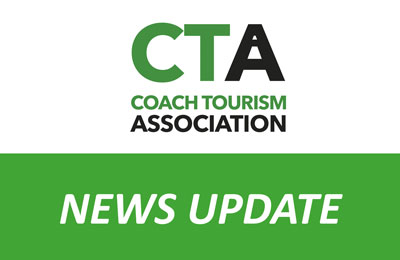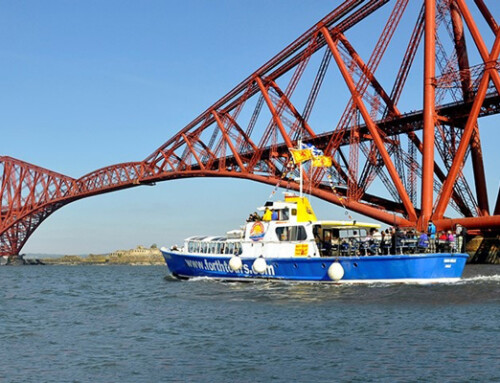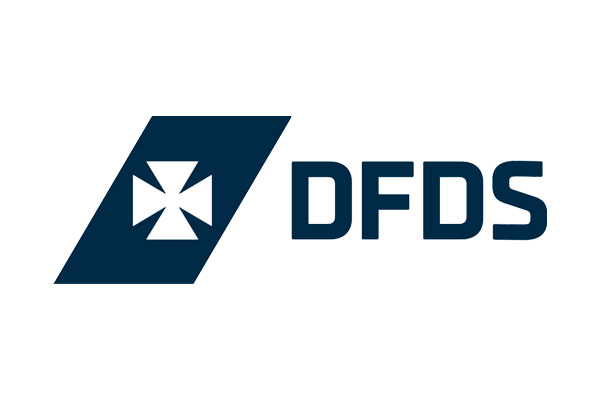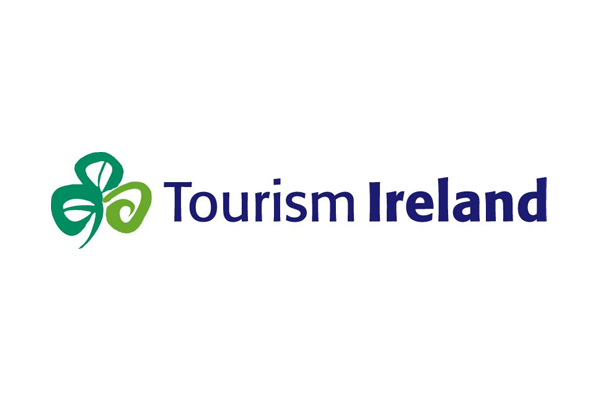COVID-19 Updates – week commencing 04/01/21
More updates of developments from the government and various links to interpretation and guidance.
Go to date:
4 January 2021 …
CPT update:
FREE TRADE DEAL FROM 1 JANUARY 2021
The UK and EU have agreed the terms of a Free Trade Agreement (FTA). There is a link to the complete FTA below, and the sections relating to Passenger Transport begin on page 252
INTERBUS AGREEMENT
INTERNATIONAL OCCASIONAL CARRIAGE OF PASSENGERS BY COACH OR BUS
The UK has already signed and will formally accede to the the Interbus Agreement on 1 January 2021
From 1 January all bilateral (point-to-point) occasional journeys to and from the EU and other states who are also signatories will operate under the Interbus authorisation
The Interbus agreement allows operators to undertake the international carriage of passengers (of any nationality) by road by means of occasional services
These occasional services can be
- Closed door tours, where passengers are picked up in the UK and returned to the UK
- One way services, where passengers are taken from the UK to a participating member and the vehicle returns empty
- One way services, where the vehicles travels to a participating member and picks up passengers and takes them to the UK
The control documents that must be carried on the vehicle in order to use the Interbus authorisation are a certified true copy of the UK Standard International Operators Licence, and an fully completed Interbus Journey Form (Waybill)
Cabotage operations are not authorised under the agreement, and therefore will not be allowed from 1 January 2021
The European Union is a member of Interbus as a single entity, and therefore for cabotage purposes is considered as one member
The Interbus agreement does not allow for transit though a participating member to a non-participating member. These rights are subject to a separate provision under the FTA
Regular services are also not authorised, and are subject to separate provisions under the FTA
From 1 January 2021 the participating members to the Interbus Agreement will be:
- United Kingdom
- European Union
- Albania
- Andorra
- Bosnia and Herzegovina
- North Macedonia
- Montenegro
- Moldova
- Turkey
- Ukraine
REGULAR SERVICES FROM 1 JANUARY 2021
Regular services are not currently authorised under the Interbus agreement
However, provisions included in the FTA will allow regular services to continue to be authorised
The FTA does not allow the authorisation of regular services with both the origin and destination in the territory of the other Party
For regular services between Ireland and the UK, passengers may be picked up and set down in one country by a road passenger transport operator established in the other country
All current authorisations will cease to be valid from 23:00 on 31 December 2020, and will therefore need to be replaced
Replacement authorisations with the same expiry date will be provided to operators before 1 January 2021
The process for renewing expired authorisations is expected to be longer that previously was the case, and operators should plan for this
The FTA also allows for special regular services (the transport of workers between home and work, and the transport of school pupils and students to and from an educational institution) to be operated for six months before authorisation is necessary
TRANSIT AND CABOTAGE RIGHTS INCLUDED IN THE FREE TRADE AGREEMENT
There are provisions included in the Free Trade Agreement that will allow operators to undertake occasional journeys on the island of Ireland with cabotage rights (to pick up and set down passengers in the Republic of Ireland)
There are also provisions which will allow operators to transit through the EU to reach a non-participating member of Interbus
This will allow UK operators to undertake occasional journeys to Switzerland and Norway under the terms of previously negotiated bi-lateral agreements with those countries
For both of the above journey types a new style journey form must be used, and CPT are currently arranging for these to be printed and made available for sale
ADDITIONAL INFORMATION FROM 1 JANUARY 2021
All 27 EU member states (and Switzerland, Norway, Iceland & Liechtenstein) will continue to recognise the UK photocard driving licence, and that therefore an International Driving Permit will not be required
However, old version paper based licences, or licences issued in Gibraltar, Guernsey, Jersey or the Isle of Man will not be recognised and an IDP will be required
From 1 January 2021 a Green Card will be necessary to confirm vehicle insurance coverage
Vehicles will also have to display a separate GB sign on the rear, as the current EU number plate will not be valid for this purpose
It was also confirmed that current European Health Insurance Cards (EHIC) will continue to be valid until the expiry date shown on the card
FINANCIAL STANDING REQUIREMENTS FROM 1 JANUARY 2021
The Office of the Traffic Commissioner has announced that the level of finance required to be held by holders of Standard Operators Licences will no longer be that set by Article 7 of Regulation (EC) No 1071/2009 of EUR 9000 for the first vehicle and EUR 5000 for subsequent vehicles
Powers included in the European Union Withdrawal Act 2018 allow further legislation The Licensing of Operators and International Road Haulage (Amendment etc.) (EU Exit) Regulations 2019 to set different levels of Financial Standing
From 1 January 2021 the levels of Financial Standing required will be:
- £ 8,000 for the first vehicle
- £ 4,500 for each subsequent vehicle
It should be noted that the only change to the requirements of Regulation (EC) No 1071/2009 relate to article 7, the level required
All other articles of that regulation are now included in UK legislation and will have to be followed by Operators
The Senior Traffic Commissioner has updated the guidance contained in Statutory Document 2 to reflect this change
5 January 2021 …
Tourism Alliance updates:
Lockdown Rules
The rules for this lockdown are very similar to the first national lockdown. The key ones for tourism are:
Travel
You must not leave your home unless you have a reasonable excuse If you need to travel you should stay local – meaning avoiding travelling outside of your village, town or the part of a city where you live – and look to reduce
the number of journeys you make overall. The list of reasons you can leave your home and area include, but are not limited to:
-
- work, where you cannot reasonably work from home
- accessing education and for caring responsibilities
- visiting those in your support bubble – or your childcare bubble for childcare
- visiting hospital, GP and other medical appointments or visits where you have had an accident or are concerned about your health
- buying goods or services that you need, but this should be within your local area wherever possible
- outdoor exercise. This should be done locally wherever possible, but you can travel a short distance within your area to do so if necessary (for example, to access an open space)
- attending the care and exercise of an animal, or veterinary services
International Travel
You can only travel internationally – or within the UK – where you first have a legally permitted reason to leave home. In addition, you should consider the public health advice in the country you are visiting.
Staying Away From Home
You cannot leave your home or the place where you are living for holidays or overnight stays unless you have a reasonable excuse for doing so. This means that holidays in the UK and abroad are not allowed. This includes staying in a second home or caravan, if that is not your primary residence. This also includes staying with anyone who you don’t live with unless they’re in your support bubble.
You are allowed to stay overnight away from your home if you:
-
- are visiting your support bubble
- are unable to return to your main residence
- need accommodation while moving house
- need accommodation to attend a funeral or related commemorative event
- require accommodation for work purposes or to provide voluntary services
- are a child requiring accommodation for school or care
- are homeless, seeking asylum, a vulnerable person seeking refuge, or if escaping harm (including domestic abuse)
- are an elite athlete or their support staff or parent, if the athlete is under 18 and it is necessary to be outside of the home for training or competition If you are already on holiday, you should return to your home as soon as practical.
https://www.gov.uk/guidance/national-lockdown-stay-at-home
The Prime Minister’s presentation including the slides is here
7 January 2021 …
Tourism Alliance updates
Travel Agents Join Closed Business List
One of the points in the new Lockdown legislation is that Travel Agents have joined the list of businesses legally required to close. This means that they should now be eligible for the LRSG (Closed) ABTA is currently seeking confirmation on this.
If you want to look through the lockdown legislation in a more useful form than the amendments I sent through yesterday, the amendments have now been incorporated into the Health Protection (Coronavirus, Restrictions) (All Tiers) (England) Regulations 2020 which you can view on the following link.
https://www.legislation.gov.uk/uksi/2020/1374
Heritage and Grassroot Sport Guidance Updated
The primary guidance for heritage businesses and those organising sports events has been updated in light of the national lockdown – although having a quick look through it there doesn’t seem to be any real change except to link it to the guidance for the national lockdown guidance.
https://www.gov.uk/guidance/working-safely-during-coronavirus-covid-19/heritage-locations
Student Visitor Guidance
The Home Office has tweaked the guidance for organisations sponsoring students gov.uk/…/coronavirus-covid-19-grassroots-sports-guidance-for-safe-provision-including-team-sport-contact-combat-sport-and-organised-sport-eventswho are distance learning because of coronavirus that was issued yesterday to say that If a student has permanently withdrawn from their studies or deferred their studies for a period exceeding 60 days, the sponsor must report this as usual.
Transport Usage
The DfT has released their weekly figures on transport usage and, unsurprisingly, the use of public transport has collapsed with the introduction of the lockdown with national rail operating and the London tube operating at under 20% of their normal level and bus services outside London are operating at under 30% of normal. Somewhat surprisingly car use is still at 60% (which is twice the level of the first national lockdown) but this could change over the next few days.
https://www.gov.uk/government/statistics/transport-use-during-the-coronavirus-covid-19-pandemic
8 January 2021 …
Pre departure Testing
The Government has announced that all people travelling to the UK will have to undertake Pre-departure testing. The key points of the announcement are:
-
- All international arrivals to England, including UK nationals, are required to present a negative COVID-19 test taken up to 72 hours prior to departure
- Passengers will be subject to an immediate fine of £500 if they fail to comply with the new regulations on pre-departure testing
- All passengers arriving from countries not on the government’s travel corridor list will still be required to self-isolate for 10 days, regardless of test result
- Passengers will still be required to fill in a passenger locator form and be subject to national lockdown restrictions
- There will be a limited number of exemptions, including for hauliers, children under 11, crews and for those who travelling from countries without the infrastructure available to deliver the tests
https://www.gov.uk/government/news/mandatory-covid-19-testing-introduced-to-bolster-border-measures










